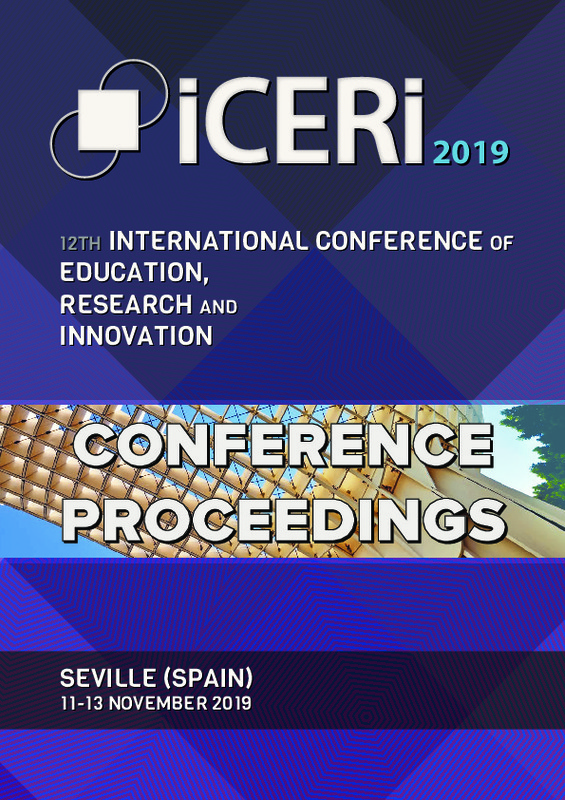JavaScript is disabled for your browser. Some features of this site may not work without it.
Buscar en RiuNet
Listar
Mi cuenta
Estadísticas
Ayuda RiuNet
Admin. UPV
Case study on peer assessment performed by engineering first year students
Mostrar el registro sencillo del ítem
Ficheros en el ítem
| dc.contributor.author | Meseguer Dueñas, José María
|
es_ES |
| dc.contributor.author | Bernal-Perez, Soledad
|
es_ES |
| dc.contributor.author | Sabater i Serra, Roser
|
es_ES |
| dc.contributor.author | Martínez Sala, Rosa María
|
es_ES |
| dc.contributor.author | Gámiz-González, M.A.
|
es_ES |
| dc.contributor.author | Quiles Casado, Susana De La Salud
|
es_ES |
| dc.contributor.author | García-Sánchez, Tania María
|
es_ES |
| dc.contributor.author | Riera Guasp, Jaime
|
es_ES |
| dc.contributor.author | Molina Mateo, José
|
es_ES |
| dc.contributor.author | Serrano, María-Antonia
|
es_ES |
| dc.contributor.author | Bonet-Jara, Jorge
|
es_ES |
| dc.contributor.author | Donderis Quiles, Vicente
|
es_ES |
| dc.contributor.author | Vidaurre, Ana
|
es_ES |
| dc.contributor.author | Tort-Ausina, Isabel
|
es_ES |
| dc.date.accessioned | 2022-02-10T08:43:11Z | |
| dc.date.available | 2022-02-10T08:43:11Z | |
| dc.date.issued | 2019-11-13 | es_ES |
| dc.identifier.isbn | 978-84-09-14755-7 | es_ES |
| dc.identifier.issn | 2340-1095 | es_ES |
| dc.identifier.uri | http://hdl.handle.net/10251/180705 | |
| dc.description.abstract | [EN] This paper presents a qualitative study on the evaluation work performed by students of two courses, Physics and Electricity, included in the first year of Electronic and Automatic Engineering Degree (School of Design Engineering) at the Universitat Politècnica de València. The teaching methodologies used include continuous and formative assessment. The activity analyzed, based on peer assessment, consists of a problem to be solved by students. The solution is reflected in a document to be evaluated by other students and instructors. In order to guide students in the evaluation process, a rubric was provided, which includes aspects to consider related to the assessment to be performed. In addition, effective communication transversal competence was assessed. Both tasks, problem resolution and evaluation, were performed in teams. Each team was made up of six members. The teams were the same in the two courses since they are consecutive, taught in first and second semester (one academic year). Each team had to solve six problems and evaluate six resolutions (from other teams) throughout both courses, without repeating the evaluated team (144 evaluations were analysed). The study has been developed in three parts; in the first one, it is analysed how the evaluation work of the teams evolved throughout the academic year. In the second part, the evaluations carried out by two different teams on the same problem resolution were compared, and finally, in the last part, the assessment made by students was compared with the one made by experienced instructors, both using the same rubric for the assessment. The results of the study show that students carry out thoughtful and rigorous assessment work. It was also found that evaluations of the same work carried out by different teams resulted in very close ratings, which supported the credibility of the evaluations. Therefore, we can conclude that methodologies based on peer assessment encourage the active participation of students and enhance their learning. | es_ES |
| dc.description.sponsorship | This work has been supported by the Universitat Politècnica de València through the Project of Innovation and Educational Improvement Program (Projects PIME/2018/B26 and PIME/2018/B25 Convocatoria de Proyectos de Innovación y Convergencia). | es_ES |
| dc.language | Inglés | es_ES |
| dc.publisher | IATED | es_ES |
| dc.relation.ispartof | Proceedings of the 12th International Conference of Education, Research and Innovation | es_ES |
| dc.rights | Reserva de todos los derechos | es_ES |
| dc.subject | Peer evaluation | es_ES |
| dc.subject | Rubric | es_ES |
| dc.subject | Teamwork | es_ES |
| dc.subject | Active learning | es_ES |
| dc.subject.classification | FISICA APLICADA | es_ES |
| dc.subject.classification | INGENIERIA ELECTRICA | es_ES |
| dc.subject.classification | TERMODINAMICA APLICADA (UPV) | es_ES |
| dc.title | Case study on peer assessment performed by engineering first year students | es_ES |
| dc.type | Comunicación en congreso | es_ES |
| dc.type | Artículo | es_ES |
| dc.type | Capítulo de libro | es_ES |
| dc.identifier.doi | 10.21125/iceri.2019.1522 | es_ES |
| dc.relation.projectID | info:eu-repo/grantAgreement/UPV//PIME%2F2018%2FB26/ | es_ES |
| dc.relation.projectID | info:eu-repo/grantAgreement/UPV//PIME%2F2018%2FB25//Proyectos de Innovación y Mejora Educativa (PIME)/ | es_ES |
| dc.rights.accessRights | Abierto | es_ES |
| dc.contributor.affiliation | Universitat Politècnica de València. Departamento de Ingeniería Eléctrica - Departament d'Enginyeria Elèctrica | es_ES |
| dc.contributor.affiliation | Universitat Politècnica de València. Departamento de Física Aplicada - Departament de Física Aplicada | es_ES |
| dc.description.bibliographicCitation | Meseguer Dueñas, JM.; Bernal-Perez, S.; Sabater I Serra, R.; Martínez Sala, RM.; Gámiz-González, M.; Quiles Casado, SDLS.; García-Sánchez, TM.... (2019). Case study on peer assessment performed by engineering first year students. IATED. 6306-6314. https://doi.org/10.21125/iceri.2019.1522 | es_ES |
| dc.description.accrualMethod | S | es_ES |
| dc.relation.conferencename | 12th International Conference of Education, Research and Innovation (ICERI 2019) | es_ES |
| dc.relation.conferencedate | Noviembre 12-13,2019 | es_ES |
| dc.relation.conferenceplace | Sevilla, España | es_ES |
| dc.relation.publisherversion | https://doi.org/10.21125/iceri.2019.1522 | es_ES |
| dc.description.upvformatpinicio | 6306 | es_ES |
| dc.description.upvformatpfin | 6314 | es_ES |
| dc.type.version | info:eu-repo/semantics/publishedVersion | es_ES |
| dc.relation.pasarela | S\400587 | es_ES |
| dc.contributor.funder | Universitat Politècnica de València | es_ES |








